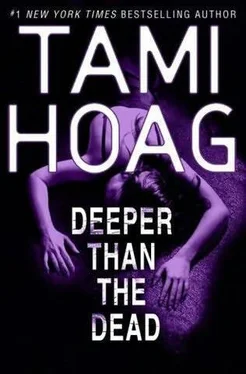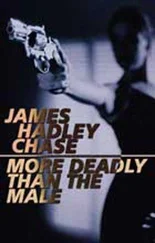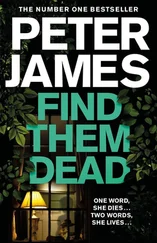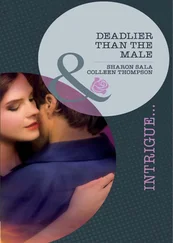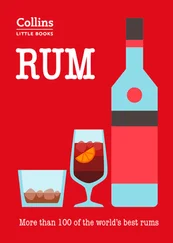“Is that her?” Dixon asked.
She didn’t answer right away. She stared at the woman on the gurney for a long, silent moment.
“Jane? Is that her? Is this Karly Vickers?”
“No,” she said at last, her voice little more than a breath. “No. It’s Lisa.”
“Lisa?”
“Lisa Warwick,” she said, and she began to tremble. “She used to work for me.”
“This woman used to work for you?” Mendez said.
“Yes.”
“And one of your clients is missing.”
She didn’t answer. She’d gone into shock. Then she began to cry and sway, and Cal Dixon stepped close and put his hands on her shoulders to steady her.
Mendez looked his boss in the eye. “Three dead, one missing. Do you still think we’re not dealing with a serial killer?”
To his credit all Dixon said was, “Call Quantico.”
Good thing, Mendez thought, because he already had.
Vince Leone closed his car door. The sound seemed amplified. He looked up at the sky. The blue was so intense it hurt his eyes. He put his Ray-Bans on and breathed deeply of the crisp fall air. His head filled with the scents of Virginia: damp earth, forest, cut grass.
The academy grounds were alive with people. Young agents going here, running there. Veterans, like himself, hustling between buildings, between meetings.
The sounds of footfalls on concrete, snatches of conversation, a lawn mower, gunfire in the distance: All assaulted his ears. His sight, hearing, sense of smell-all seemed magnified, hypersensitive. It might have been an inner need to absorb as much of life as possible, or it might have had something to do with the bullet in his head.
He went into the building, to the elevators, pushed the Down button. Down. Way down. People got on the car with him. A couple of them looked at him sideways, then looked away. He vaguely recognized faces but couldn’t recall names. He didn’t know them well-or they him, he suspected, though his short-term memory still had some holes in it.
They knew of him, he suspected. He had signed on with the Bureau in 1971 after a stellar career in homicide in the Chicago PD. He had come to Quantico and the Behavioral Sciences Unit the fall of 1975, just as the unit was beginning to blaze some exciting trails. Being a part of that time had made him and his colleagues legends. He was forty-eight and a legend. Not bad.
Or maybe these people knew about him, as in “The guy that got shot in the head and lived.” The academy was a small, incestuous community, and like in all small, incestuous communities, gossip ran thick and fast.
The elevator stopped and most of the passengers got off, headed for the cafeteria or PX. The smell of coffee, eggs, and bacon grease hit him like a brick, then the doors closed and the car began to drop another twenty feet to what the agents lovingly referred to as the National Cellar for the Analysis of Violent Crime.
The warren of offices and conference rooms had been a bomb shelter during the height of the Cold War, a hideout for J. Edgar and his cronies in the event of nuclear attack. The Bureau had seen fit to send the Behavioral Sciences/Investigative Support Unit down to the win dowless, sometimes musty-smelling, subbasement a year before.
Closed off in their own giant tomb with their cases-the worst of the worst murders and sexual assaults the country had to offer-the agents joked (in the gallows humor that kept them for what passed as sane) that they lived and worked ten times deeper than the dead.
Leone stepped off the elevator.
“Vince!”
He glanced up at his colleague, wearily amused by the expression on his face. “Bob. I’m not a ghost.”
“Geez, no. Not at all. I’m just surprised to see you, that’s all. What are you doing here?”
“Last I knew, I worked here,” Vince said, turning in the opposite direction.
He went into the men’s room, went into a stall, and puked, a wave of heat sweeping over him. The meds or maybe nerves, he admitted to himself. He’d been gone six months.
A couple of stalls down, someone else vomited.
They came out of the stalls and went to the sinks together.
“Vince!”
“Got a bad one, Ken?” Leone asked. He ran the faucet, scooped water into his hand, and rinsed his mouth.
Ken’s face was gray and drawn, his eyes haunted. “Three little kids, sexually assaulted, their faces blown off with a shotgun.
“We don’t know who they are, where they came from. We can’t compare dental records to missing kids’ because they don’t have any teeth left. We keep hearing about DNA profiling as the coming thing, but it can’t come fast enough for these kids.”
“It’s years out,” Vince said. It would be a miracle for law enforcement when the technology came, but as Ken had said, it couldn’t come fast enough.
Ken shook his head as if he were trying to shake the images from his brain. Ken was a top profiler, but he had never quite mastered the ability to close the door between analysis and sympathy. Therein lay the road to an ulcer, at the very least.
“It’s always worse when it’s kids,” Vince said.
“I don’t know how much more of this I can take,” he admitted. “The vics were about the same ages as my boys. I go home at night… You know how it is.”
“Yep.”
Vince went home at night to a big-screen TV. He’d been divorced seven years. His oldest was in college now. But he remembered how it had been to try to leave cases at the office so he could go home and pretend to be normal.
“I played golf with Howard on the weekend,” Ken said. “IRDU is looking pretty good to me.”
“Research and Development. Hmmm…” Vince would have sooner stayed home and hit his thumb with a hammer over and over, but that was him.
“Hey,” Ken said, as if he had only just realized. “What are you doing here?”
Vince shrugged. “It’s Wednesday.”
All of the profilers also taught about fifteen hours a week, both in the FBI Academy and the National Academy for law enforcement officers. But they didn’t teach on Wednesday mornings. For those not out in the field on assignments, Wednesday mornings were spent in the conference room, going over case facts, picking one another’s brains, bouncing ideas off one another.
BSU had grown over the ten years of its existence to include six full-time profilers, working to assist local law enforcement in solving tough cases. When John Douglas had been made chief of the operational side of BSU, the profilers had been given their own acronym-ISU, Investigative Support Unit-within the BSU. Douglas had wanted to take the BS out of what they did. Ironically, the agents in the unit continued to call themselves BSUers.
BSU. ISU. Another three letters added into the giant vat of alphabet soup that was the Bureau. Unit names seemed to change with every new unit chief, and every new chief seemed to have some pet subgroup to create. IRDU (Institutional Research and Development Unit). SOARU (Special Operations and Research Unit). NCAVC (National Center for the Analysis of Violent Crime). NCIC (National Crime Information Center). VICAP (Violent Criminal Apprehension Program).
Despite John’s best hope, BS was the Bureau’s specialty.
Vince went into the conference room, turning his back to the long table as he poured himself a cup of coffee to burn the taste of vomit out of his mouth.
The discussion of Ken’s case was already under way. Crime scene photos were being passed around and remarked upon. What did this mean? What did that mean? If the children were related, it meant this. If the children had been abducted individually, it meant that. How would authorities go about the task of identifying the bodies? How many children had been reported missing in a two-hundred-mile radius in the past year?
Читать дальше
